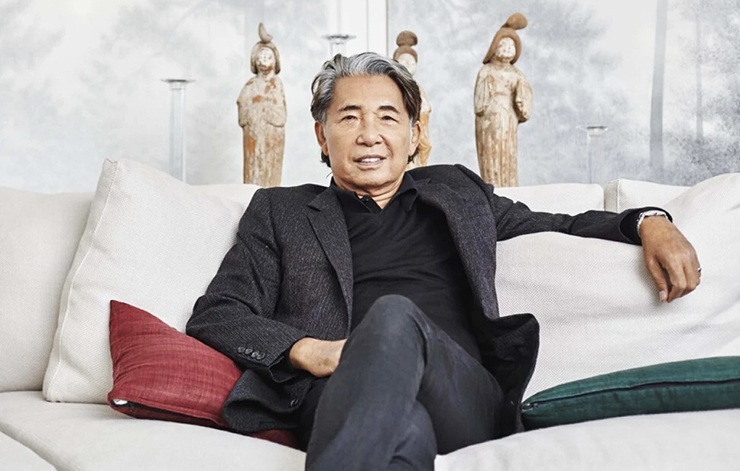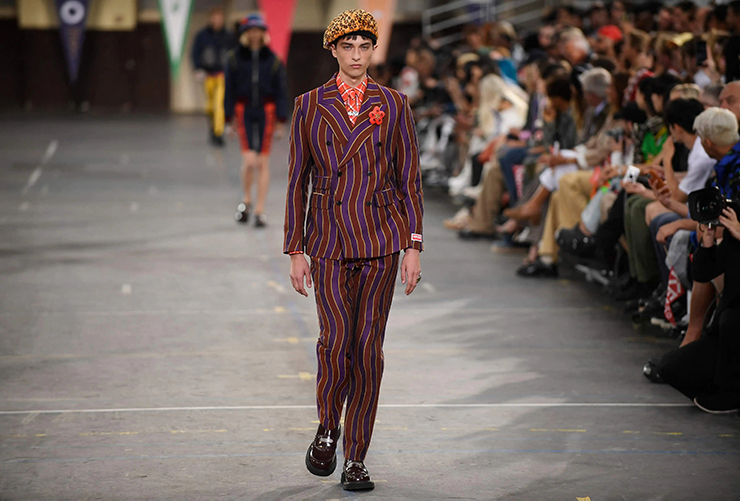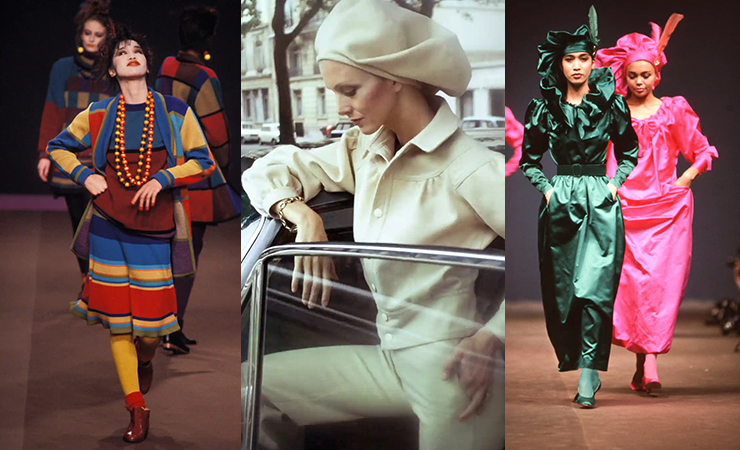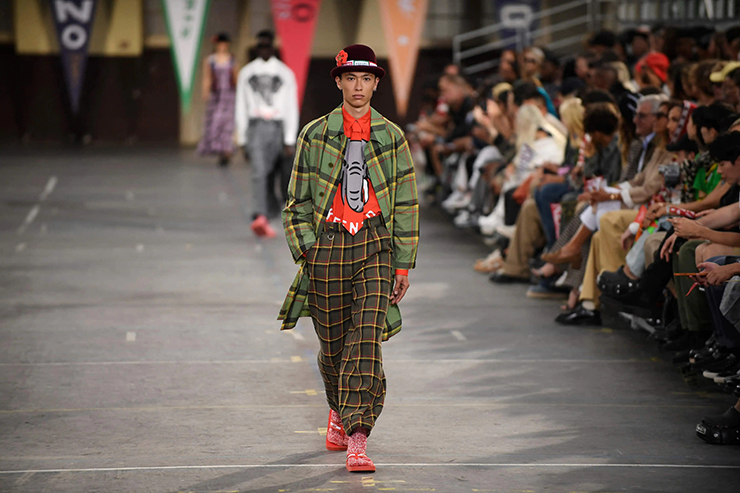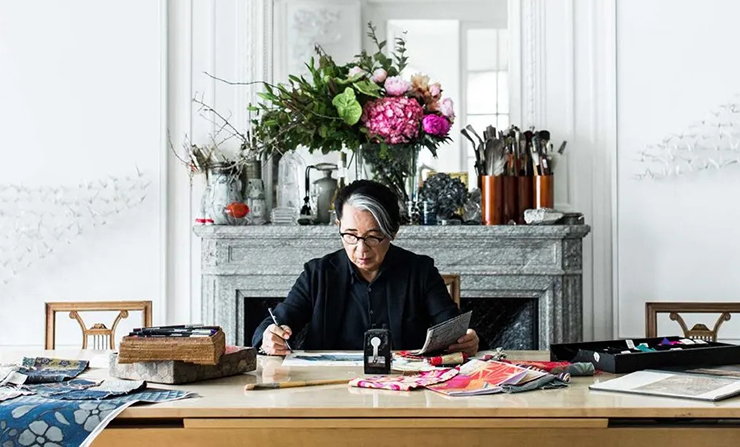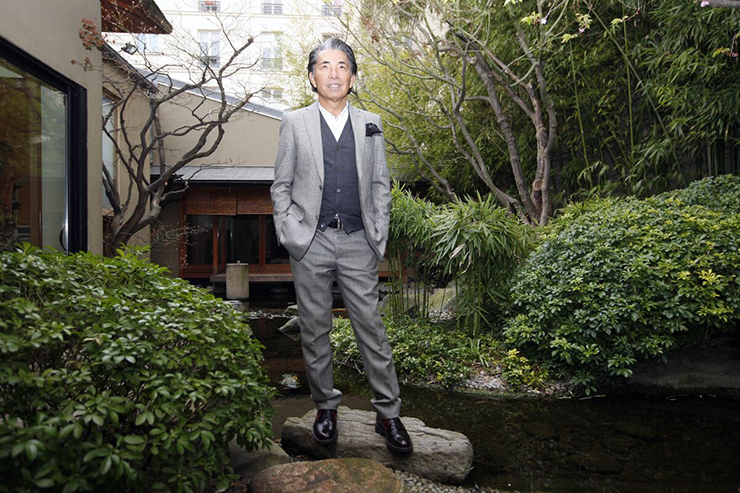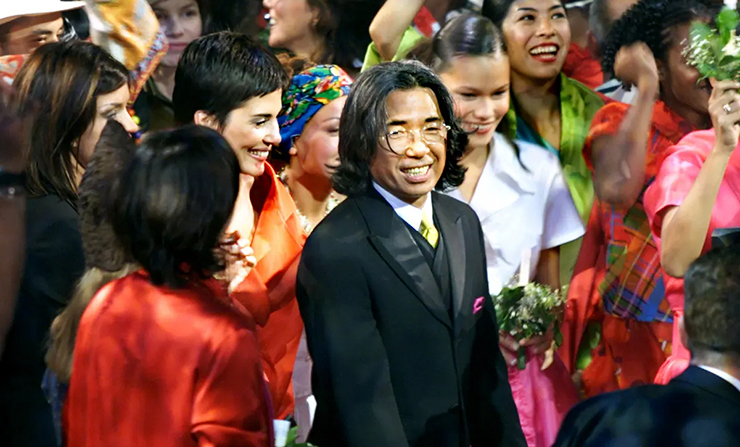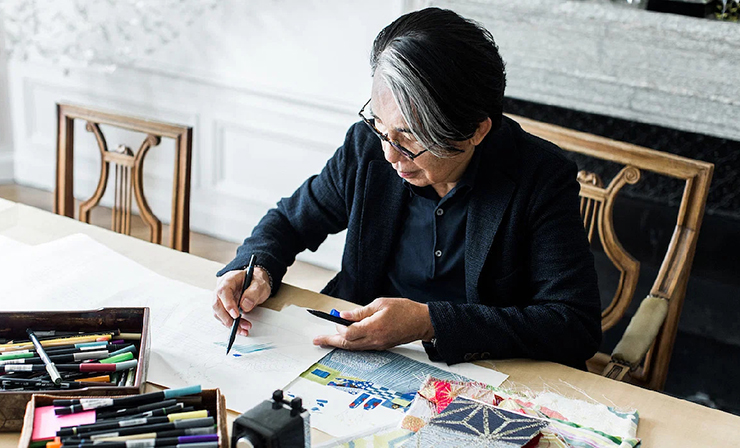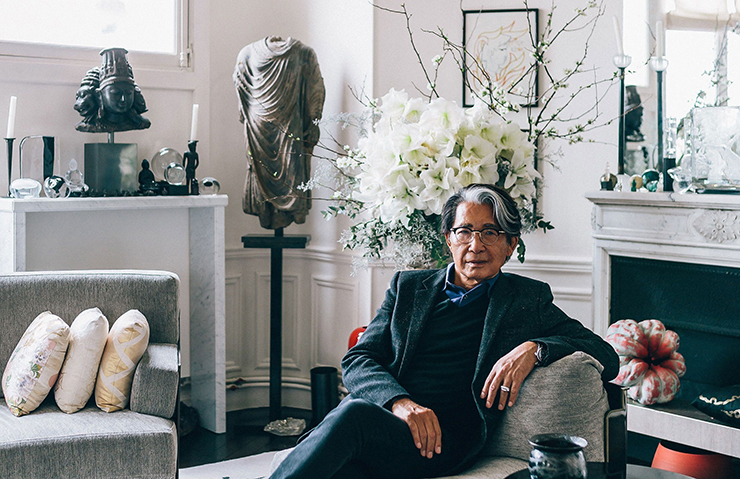Kenzo Takada
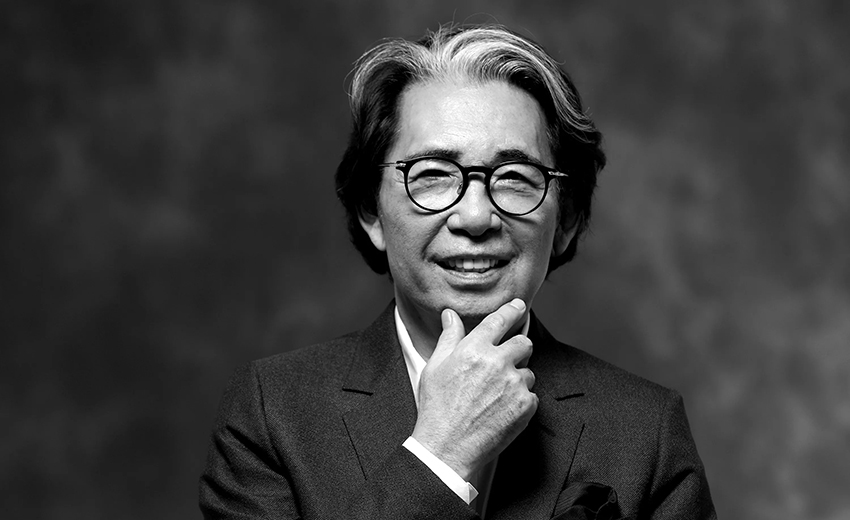
Kenzō Takada / 高田 賢三 (27 February 1939 – 4 October 2020) was a Japanese fashion designer living in France, who founded a worldwide clothing/skincare/perfume brand “Kenzo”.
Kenzo was born at Himeji, Hyōgo Prefecture in Japan, and was the seventh child of his parents, who owned a small hotel in Japan. Young Kenzo has been fascinated by fashion since childhood. After finishing school, the young man did not want to continue his studies at the University and asked his parents to let him attend the same fashion school that his sister attended before. But his parents refused him, and he began to study English literature at Kobe City University of Foreign Studies. After staying there for only one semester, Kenzo left the university and went to Tokyo. To earn money for his studies, he had to work as an apprentice for a painter for seven dollars a month. Later, Kenzo became the first young man who was accepted into the oldest Japanese school of fashion designers — Bunka Fashion College — since before that only girls were accepted there.
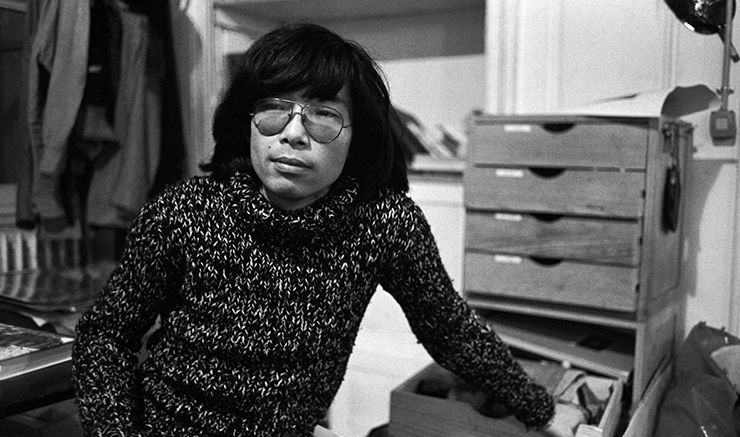
Early in his career, Takada worked as a fashion designer for a department store chain and as a fashion model for a Tokyo fashion magazine. At that time, his only desire was to go to Paris, especially after his teacher Chie Koike, who had just returned from France, told him about the collections of Yves Saint Laurent and the events of the Parisian fashion world.
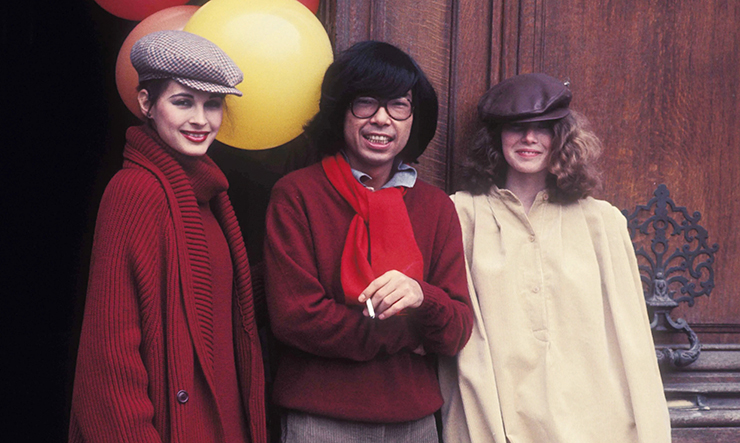
Soon after that, luck smiled on the young Kenzo, and he received a compensation in the amount of 350 thousand yen for the demolition of the house where he used to live at that time. In January 1965, Kenzo arrived in Marseille and boarded a train for Paris. He neither spoke French nor had a job or money, so he was more watching and listening than talking. Paris became an open book for Kenzo. As he himself often liked to recall: “In no corner of the world did I feel as good as in Paris — every stone, every cloud, every passer-by here helps me in my work. Although at heart I remain a Japanese”.
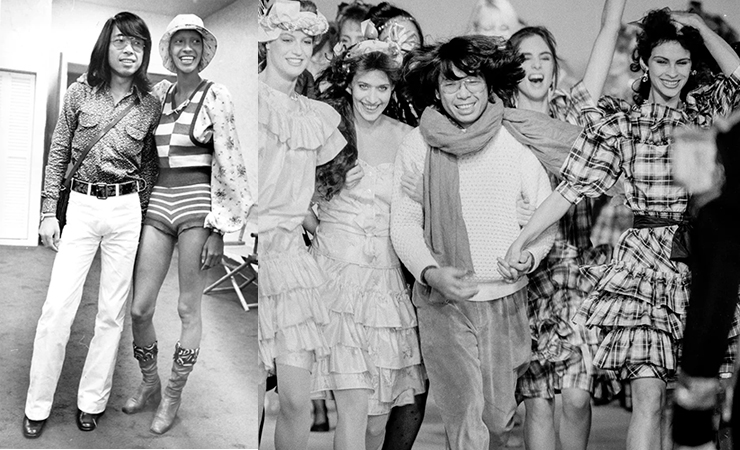
Since 1965, having rented a room in the Montmartre district, Kenzo regularly attended all the most important shows — Pierre Cardin, Christian Dior, Coco Chanel — but at the same time he plunged deeper into depression. Haute couture seemed to him as an inaccessible goal, since the ideal clothes were far from real life. Kenzo understood that if he went the traditional way, it would take him decades to catch up with the already existing eminent designers. Something new and previously unheard of in Paris was needed.
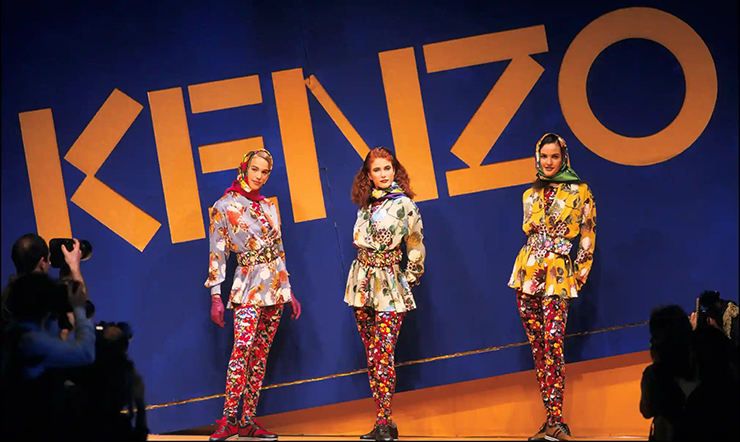
Kenzo decides to focus on everyday youth fashion, which ultimately brings him quick success. Kenzo clothing stands out for its inimitable mix of colors and patterns. In his unique style, Kenzo combines Far Eastern ethnic influences with Parisian chic.
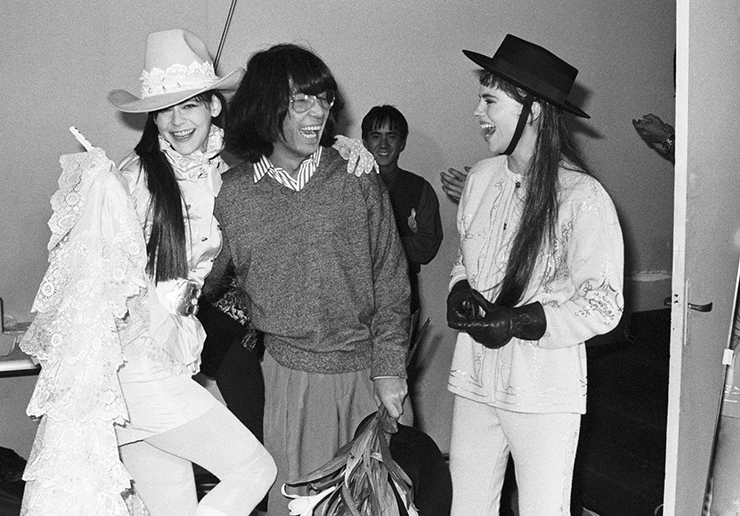
Kenzo’s style was often referred to as “Couture Destructuree”, and this became in tune with the mood of a new generation of young Parisians. Creating five collections a year, Kenzo gets rid of the tight-fitting cut and darts, creating his clothes on the basis of a straight, free cut, with color combinations that are unusual for the European eye. His collections are filled with color and floral motifs, as the flowers in Japan have always been a special form of expression of love for life and freedom.
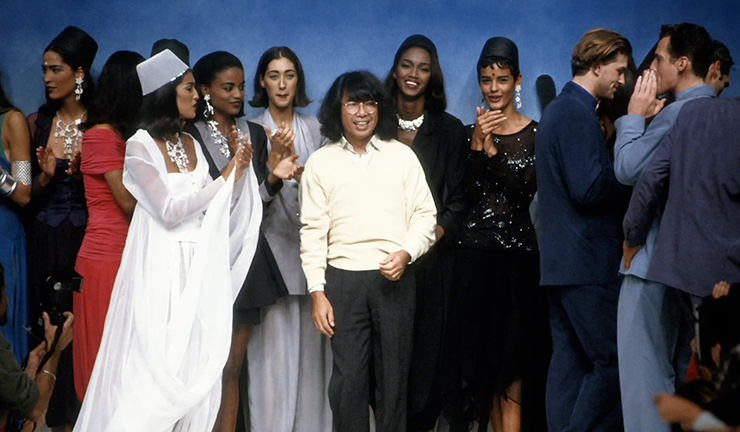
In 1983, Kenzo launched a men’s fashion line, where, similar to his female collections, he combined fabrics of different colors along with various prints, such as, for example, striped trousers and an elegant floral jacket.
In 1988, Kenzo released his first perfume.
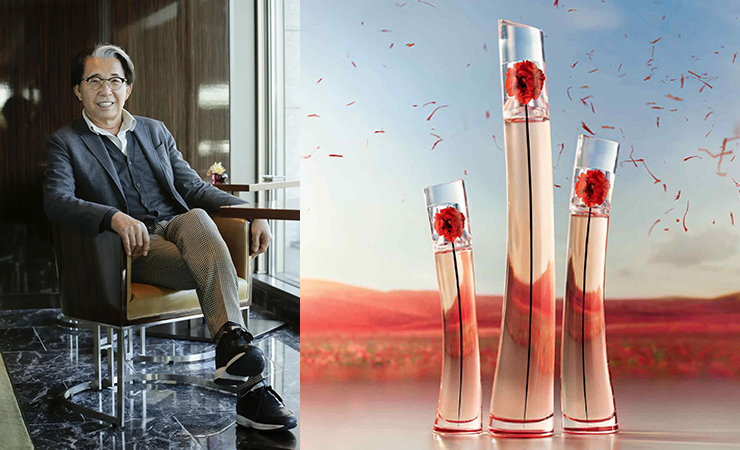
In 1993, the thriving brand Kenzo is getting purchased by LVMH group, which owned most of the French fashion houses. For the first time, Kenzo now could afford the luxury of just being creative without delving into the business.
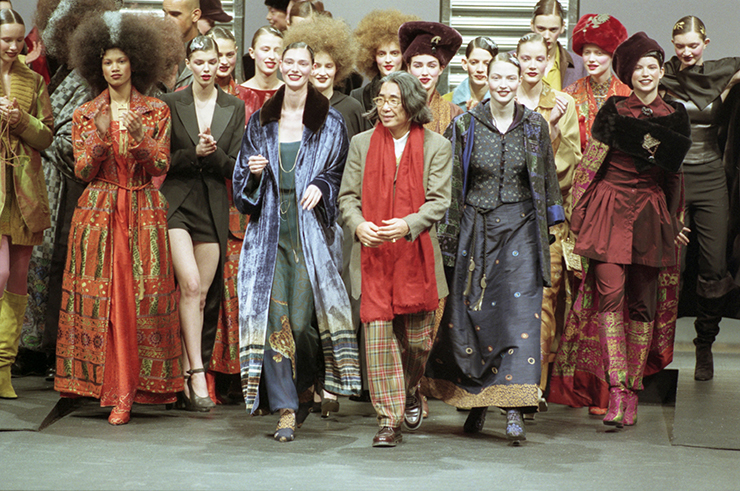
In October 1999, in Paris, Kenzo showed his last pret-a-porter spring-summer 2000 collection, followed by an impressive retrospective of three decades of creativity, after which the designer left the fashion house.
Commenting on his retirement, Kenzo said: “I want to take a couple of years to reassess values, relax, gain strength, I really need it. I want to travel a lot — just for fun, I want to devote myself to what I didn’t have time for before. You have to be curious and do what you like, even if it doesn’t bring you money, and arrange holidays for yourself more often, go where the blue sky, golden sand and hot sun are…”.
Kenzo Takada died on 4 October 2020 in Paris, from the complications after COVID-19, at the age of 81 years old.
